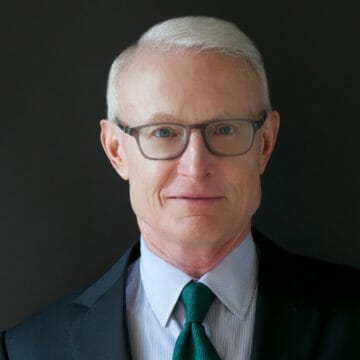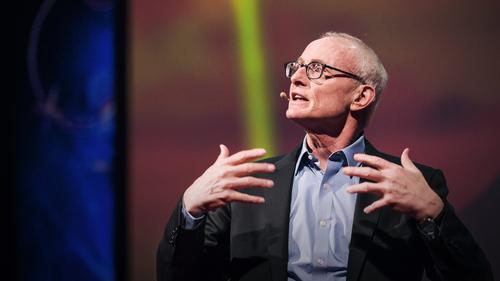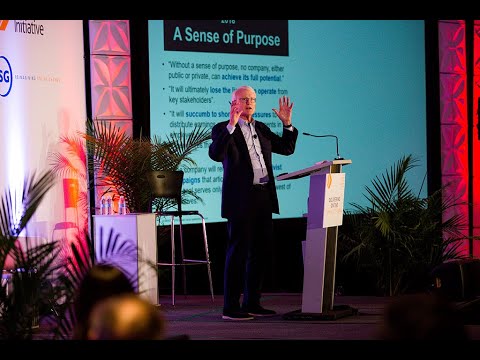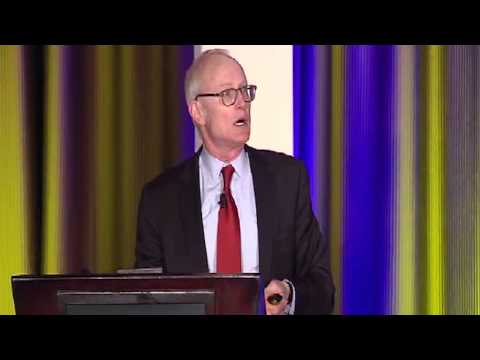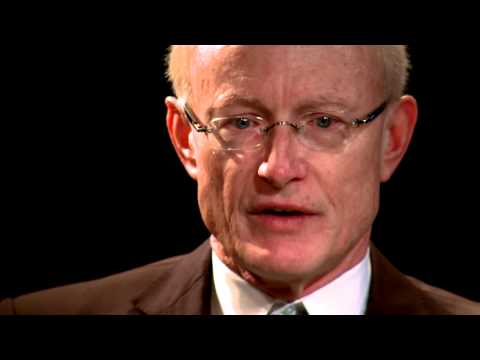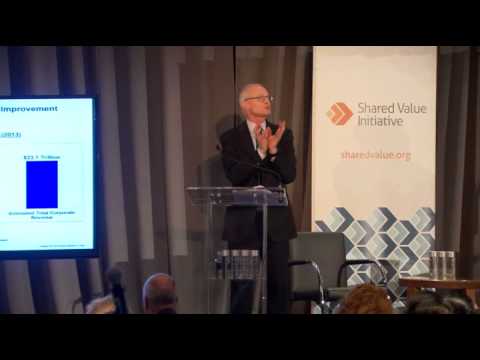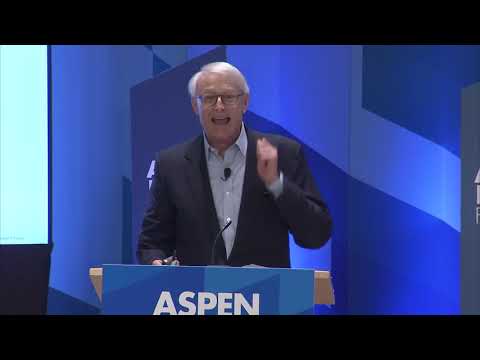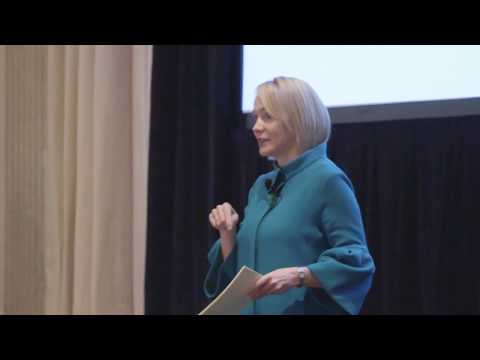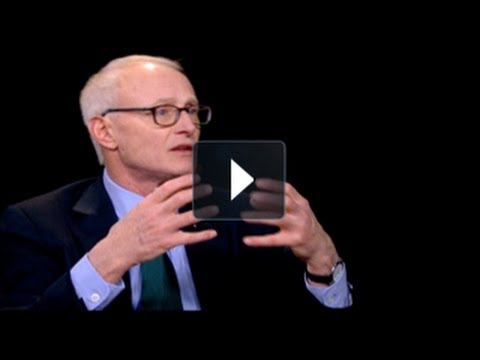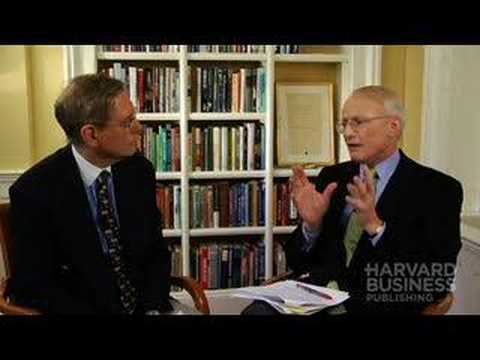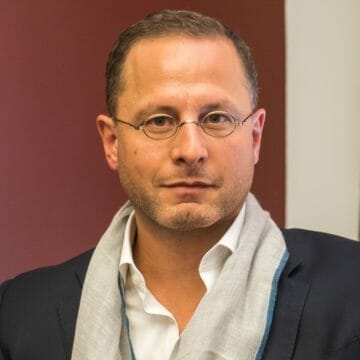Videos
Learn More About Michael E. Porter
Widely recognized as the father of modern business strategy, Dr. Michael E. Porter is a renowned economist and one of the world’s most legendary thinkers on management and competitiveness. His first book, “Competitive Strategy” (Free Press), defined the modern strategy field since its publication in 1980. Throughout his career at Harvard Business School, he has brought economic theory and strategy concepts to bear on many of the most challenging problems facing corporations, economies and societies, including market competition and company strategy, economic development, the environment, and health care. Today, according to Fortune magazine, he has “influenced more executives – and more nations – than any other business professor on earth.”
Named a University Professor by Harvard University – the highest recognition that can be awarded to a Harvard faculty member – Dr. Porter and his competitive doctrine continue to spur catalytic change across global business, government and social sectors. Dr. Porter’s early work was on industry competition and company strategy, where he was the pioneer in utilizing economic theory to develop a more rigorous understanding of industry competition and the choices companies make to compete.
In addition to advancing his home field of industrial organization economics, Dr. Porter’s work has defined the modern strategy field. More recently, his work focuses on elevating America’s competitiveness through Harvard Business School’s U.S. Competitiveness Project – a research-led initiative that is part of the Institute for Strategy and Competitiveness, dedicated to furthering Dr. Porter’s principles. His Harvard Business Review article, How Smart, Connected Products Are Transforming Competition (November 2014), details a new era in competition driven by information technology and the Internet of Things. To capture the value creation opportunity presented by smart, connected products, businesses and their leaders must assess every part of their business strategy, he says.
Additionally, Dr. Porter has written about economic development and competitiveness, focused on the micro-economic underpinnings of national and regional economic development. His book “The Competitive Advantage of Nations” (Free Press,1990) was the initial foundation of this body of work. He also created the Cluster Mapping Project, which pioneered the rigorous measurement of economic geography and has become the standard in the U.S., Europe, and a growing number of other countries. His theories are widely applied by both government policymakers and economic development practitioners globally. Dr. Porter plays an active role in U.S. economic policy with the Executive Branch and Congress, and has led national economic strategy programs in numerous countries. He’s also applied his thinking to the political sector and published a book with Katherine Gehl “The Politics Industry: Political Innovation Can Break Partisan Gridlock and Save Our Democracy,” (Harvard Business Review Press, June 2020).
In environmental policy, Dr. Porter proposed the “Porter Hypothesis” in the early 1990s, which put forward the novel theory that strict environmental standards were not in conflict with company profitability or national competitiveness, but could enhance both. The Porter Hypothesis has given rise to several hundred scholarly articles in the literature on environmental economics.
Dr. Porter also developed a body of work on the role of corporations in society. His ideas have changed the way companies approach philanthropy and corporate social responsibility, and he introduced the concept of creating shared value in a 2011 paper with Mark Kramer that shows how capitalism itself can be the best route to real solutions to many social problems. Dr. Porter has also led the development of the conceptual framework underlying the new Social Progress Index. First released in 2014 and covering 132 countries, the Index rigorously measures each country’s social progress across multiple dimensions to complement traditional measurement focused solely on economic performance and GDP per capita.
Dr. Porter also devotes considerable attention to the economics of health care. His book, “Redefining Health Care” (Harvard Business Review Press, 2006), written with Dr. Elizabeth Teisberg, outlines a new strategic framework for transforming the value delivered by the health care system. Through this book and a series of articles, including What Is Value in Health Care? (New England Journal of Medicine, December 2010) and The Strategy That Will Fix Health Care (Harvard Business Review, October 2013), Dr. Porter has introduced the core concepts for reorganizing health care delivery organizations, measuring patient outcomes, understanding the actual cost of care by medical condition, designing value-based reimbursement models, and integrating multi-location healthy systems, among others.
Embracing his entrepreneurial spirit and passion for furthering important social causes, Dr. Porter has founded or co-founded four non-profit organizations growing out of his scholarly work: The Initiative for a Competitive Inner City, which addresses economic development in distressed urban communities; the Center for Effective Philanthropy, which creates rigorous tools for measuring foundation effectiveness; FSG, a leading non-profit strategy firm serving corporations, NGOs, and foundations in improving social value creation; and the International Consortium for Health Outcomes Measurement (ICHOM), which develops global patient outcome standards and risk factors by medical condition and drives their adoption globally.
Dr. Porter received a Bachelor of Science in engineering with high honors in aerospace and mechanical engineering from Princeton University, a master’s degree with high distinction from Harvard Business School; and a doctorate in business economics from Harvard University. He is the recipient of 22 honorary doctorates, and several national and state honors, including the first-ever Lifetime Achievement Award from the U.S. Department of Commerce for his contribution to economic development.

The Politics Industry: How Political Innovation Can Break Partisan Gridlock and Save Our Democracy
(Harvard Business Review Press, June 2020)

Why Competition In The Politics Industry is Failing America
(Harvard Business School, September 2017)

Redefining Health Care: Creating Value-Based Competition on Results
(Harvard Business Review Press, May 2006)
“Business leaders who advocate for special interest cronyism and corporate welfare do so to the detriment of the larger business community and our country as a whole. This book shines a light on how the current political system enables those in power—both in and out of government—to stack the deck against people who start with little or nothing. The consequences extend far beyond the obvious economic waste to injustices that give rise to civil unrest and division among people that threatens the very core of our democratic republic. Whether you agree with every aspect of the proposed solutions or not, this book makes an important contribution to the conversation about how to change our political system for the better. I applaud Gehl and Porter for taking on such a crucial and timely topic.”
“A noted business leader joins America’s preeminent business strategist to diagnose what ails our political system and prescribe a cure. Timely indeed.”
“Gehl and Porter’s powerful book is a deep and persuasive analysis of our current political dysfunction and practical steps for change. Let us hope the public and our leaders take heed.”
“This book is an actual manual for how Americans can reclaim our democracy and make it work for the people rather than for the political-industrial complex. Read it and act!”
“Whether you are the candidate on the ballot or the citizen casting the vote, we can all learn from Gehl and Porter’s blueprint to improve our democracy.”
“A revealing perspective on why our $16 billion political industry is failing the American people. The proposed solutions reflect the heart of the American ethos—innovation, determination, courage, and the will to reinvent the status quo.”
“Gehl and Porter deliver a stunning indictment of American politics and government. But [they] provide us with much more than analysis and diagnosis. They offer practical reforms to end this destructive political gridlock and dysfunction. This is an impassioned and timely book that deserves wide readership.”
“Gehl and Porter are true experts. They provide not just analysis or endless commentary but a plan for real change—all for the better. This is a fresh look at American politics.”
“This book could not be more timely, as people in this election year reflect on the future direction of the United States. ‘The Politics Industry’ makes it clear that we have to roll up our sleeves and look for new solutions to overcome political gridlock and partisanship. Our Constitution gives us the latitude to do that. The reform steps laid out here are just as ‘constitutional’ as the current rules. They promise to unleash much-needed competition for the best leaders and policies.”
Harvard Business School Faculty Page
Institute for Strategy & Competitiveness
Harvard U.S. Competitiveness Project
The Social Progress Imperative
The Initiative for a Competitive Inner City
Why Competition in the Politics Industry is Failing America Website
International Consortium for Health Outcomes Measurement (ICHOM)
